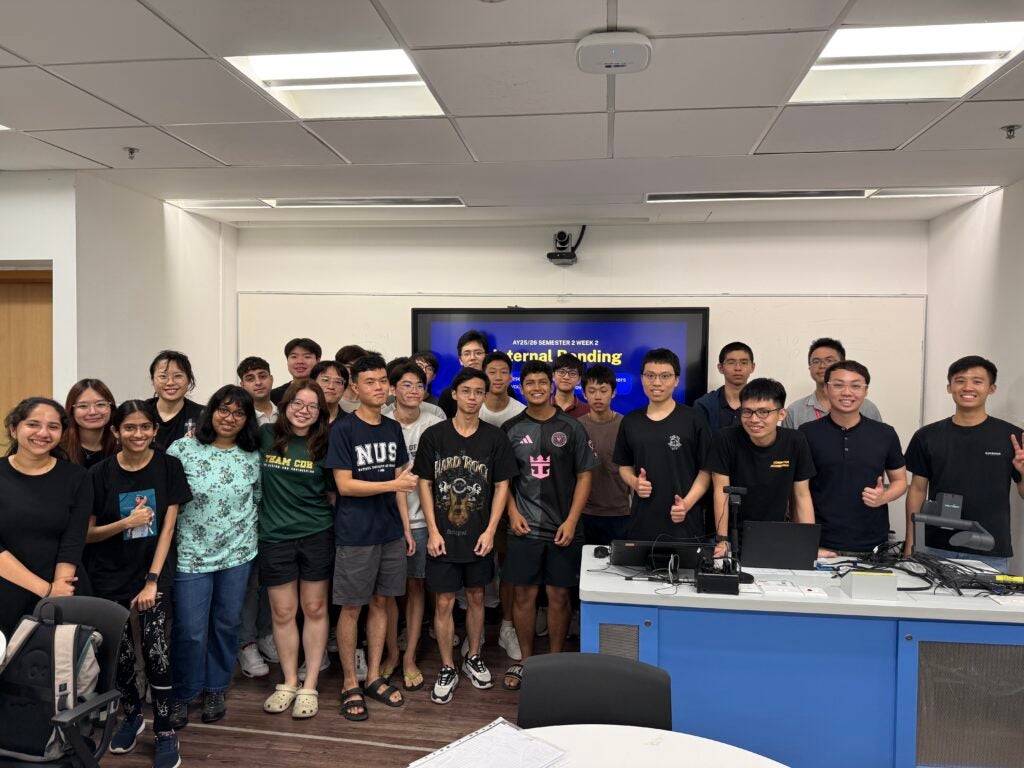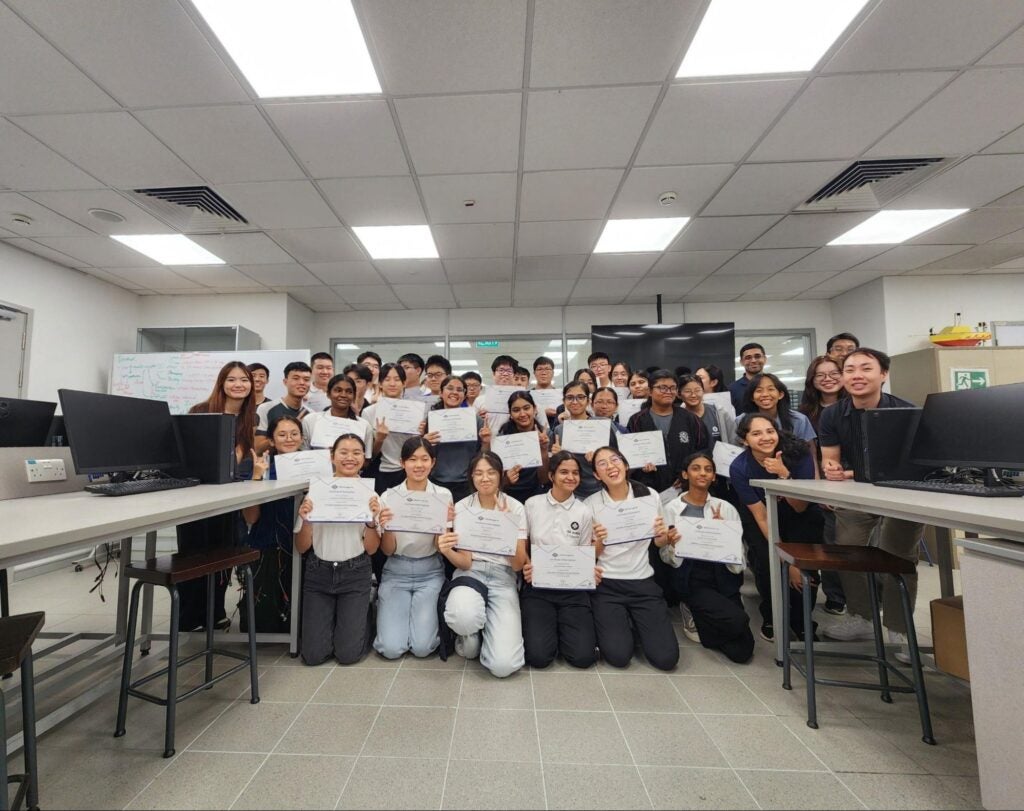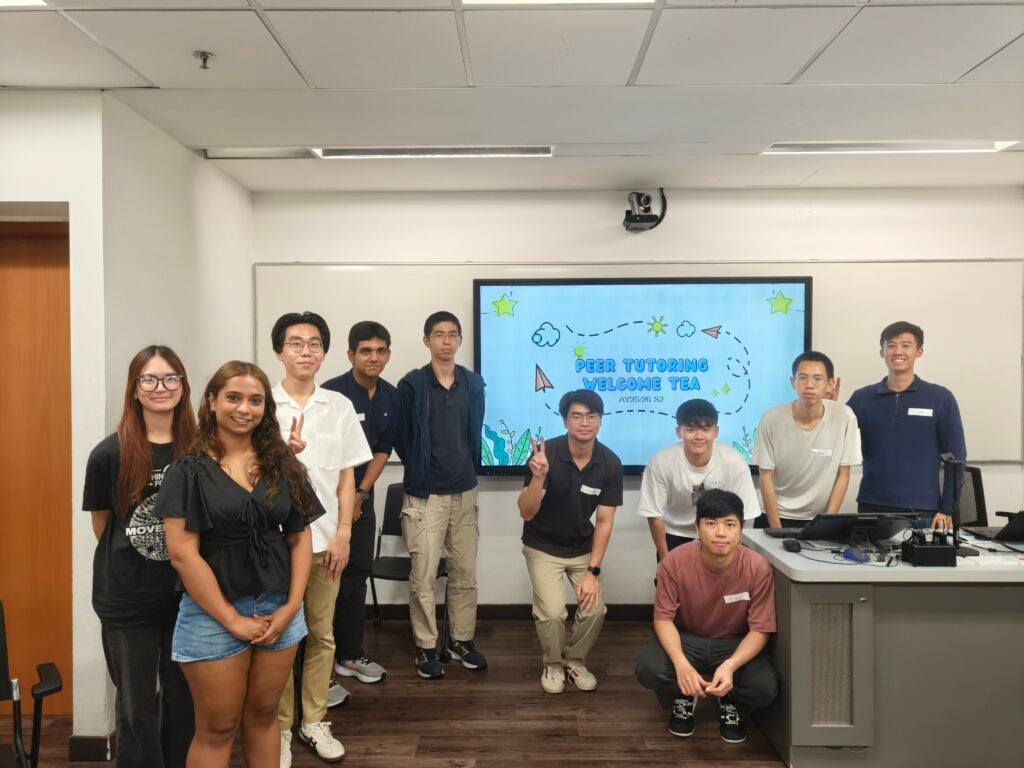Dr. Mrutyunjaya Sahani, Senior Research Fellow at the Department of Electrical and Computer Engineering (ECE), National University of Singapore (NUS), has been awarded the Best Paper Award at the International Conference on Power Electronic Converters for Transportation and Energy Applications (PECTEA 2025), held from 18–21 June 2025 at the Indian Institute of Technology Bhubaneswar.
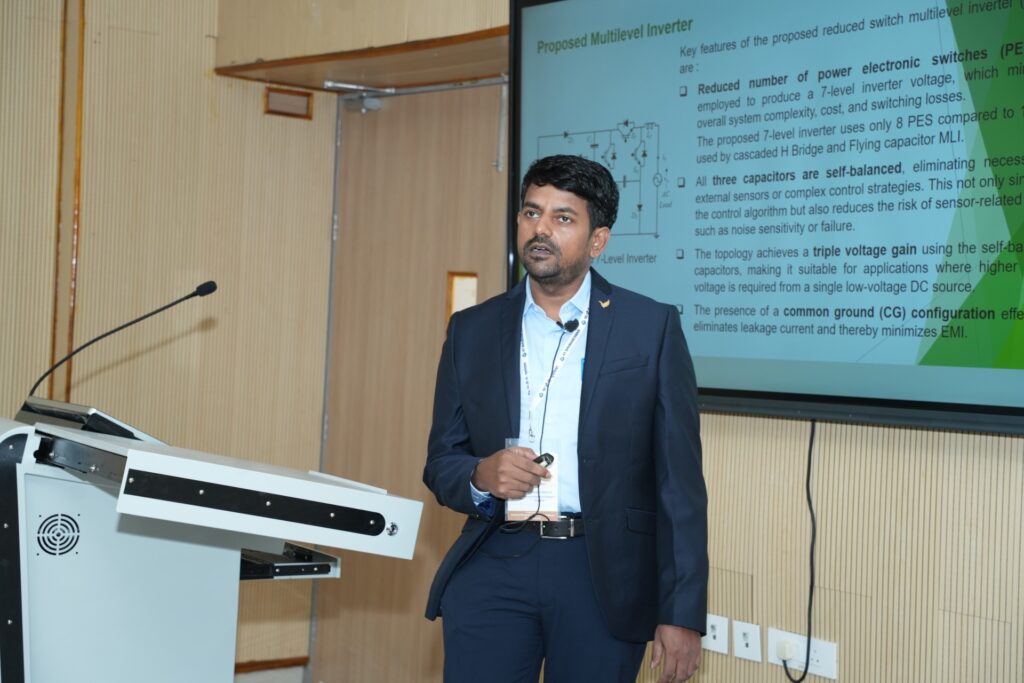
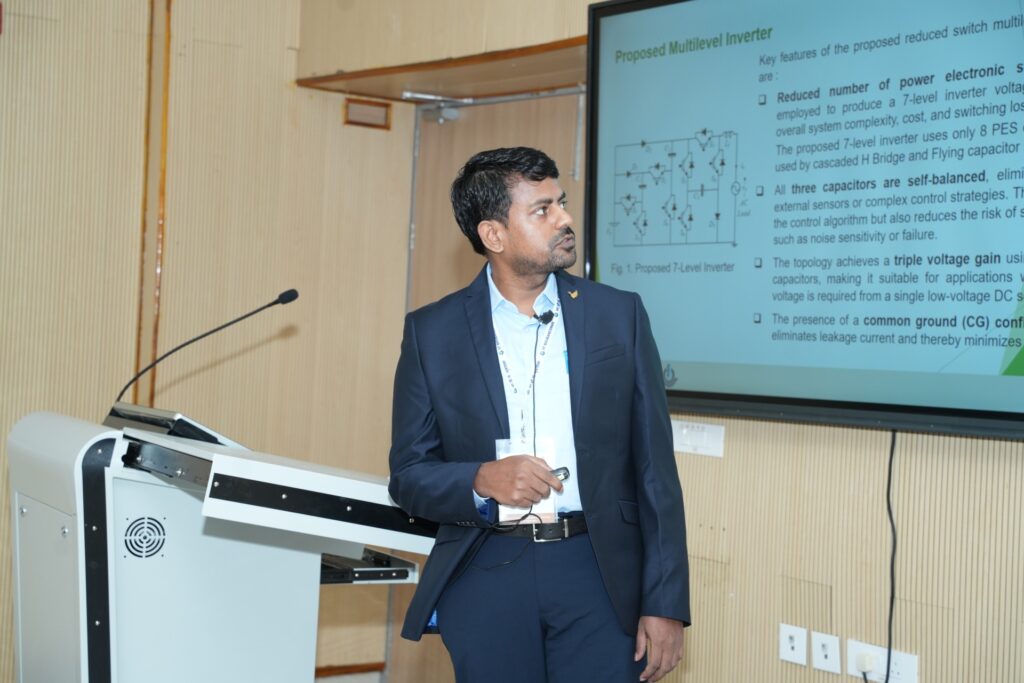
His paper, titled “Online Corrective Contingency Analysis for Floating Green Microgrid Using Holomorphic Embedding Method and Extreme Learning Machine,” presents a robust and intelligent solution for managing contingency scenarios in modern microgrids, particularly floating green microgrid systems.
The study introduces a hybrid framework combining the Holomorphic Embedding Power Flow Method (HEPFM) with a Functional Expanded Extreme Learning Machine (FEELM). This approach significantly enhances the speed and accuracy of power flow analysis, outperforming traditional methods, and enables real-time corrective actions in response to emergencies.
Key contributions of the paper include:
-
Real-time evaluation of “what-if” contingency scenarios across three operational modes: black start, baseline, and generation outage
-
Use of performance indices based on voltage and active power to assess system vulnerability
-
FEELM-driven corrective recommendations based on generation, storage, and load dynamics
-
Support for both grid-connected and islanded microgrid modes
Simulated using MATLAB/Simulink, the proposed framework demonstrates strong potential for practical deployment in resilient, sustainable energy systems. The paper highlights the increasing relevance of AI-integrated power flow models in designing the next generation of intelligent, adaptable microgrids.
This award recognizes Dr. Sahani’s significant contribution to the field of renewable energy systems, and further affirms NUS ECE’s position as a global leader in semiconductor technologies, smart grid innovation, and sustainable infrastructure solutions.


